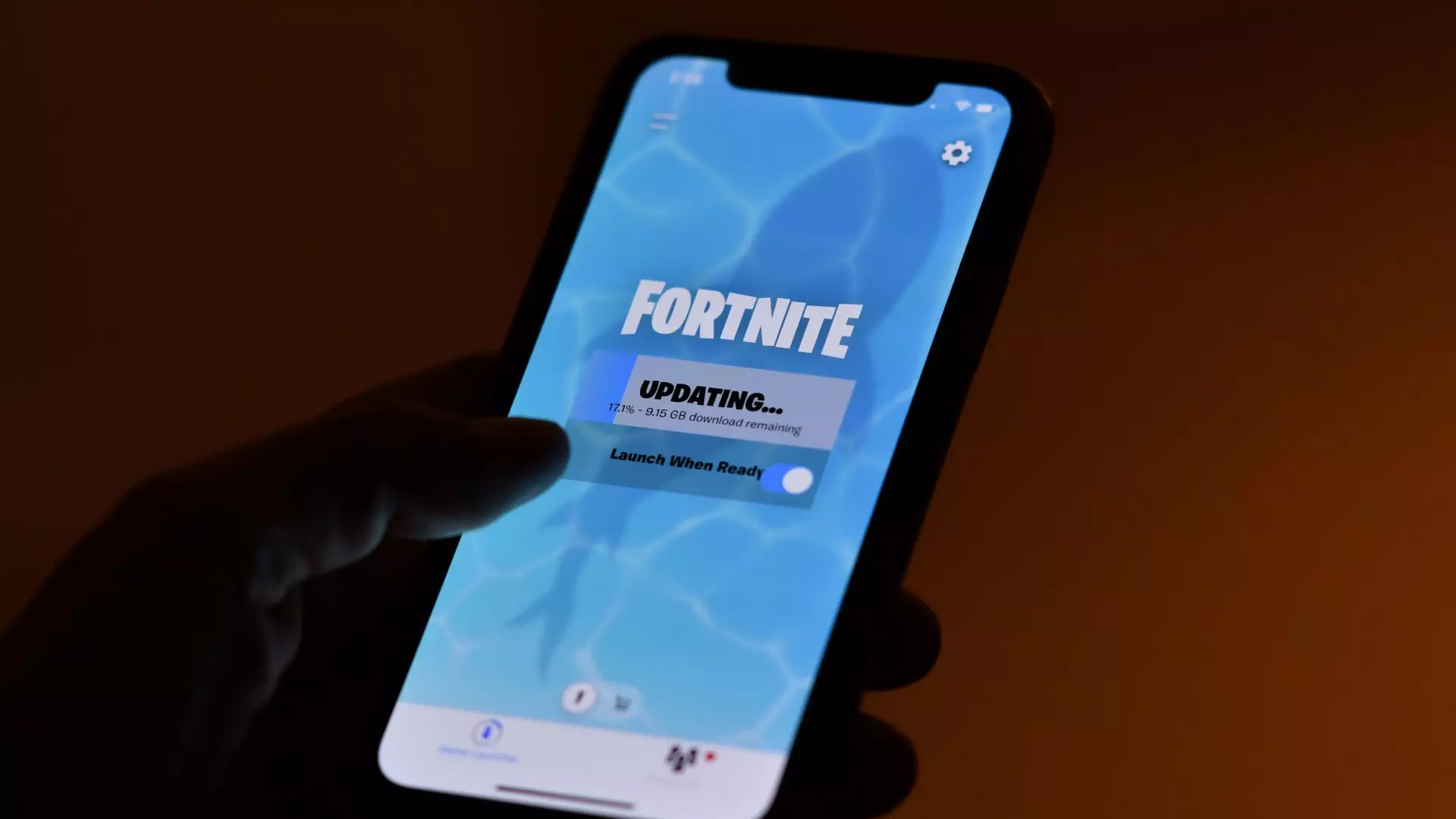The legal tussle between Apple and Epic Games over the fate of Fortnite on the iOS App Store is more than just a corporate skirmish; it represents a critical moment in the battle for digital rights and fair competition in the app economy. With Judge Yvonne Gonzalez Rogers mandating that Apple resolve its issues with Epic Games promptly, the company’s inaction could have far-reaching consequences—not just for itself, but for the future of how apps interact with their users globally.
Apple’s history of controlling its ecosystem is well-known. With its dictatorial grip on app submissions, it has effectively crafted a narrative of security and exclusivity. However, this stance has increasingly come under scrutiny, especially as legal rulings challenge its practices. The judge’s insistence that an Apple executive appear in court underscores the growing impatience with the tech giant’s refusal to engage transparently and constructively. Rather than fostering an innovative environment, Apple appears to be retreating into bureaucracy.
The Double Standard of Digital Distribution
Apple’s initial removal of Fortnite from its App Store in 2020 was not merely a reaction to Epic’s unilateral pricing move; it was a display of the company’s unwillingness to tolerate any encroachment on its revenue-generating paradigm. This action set off a chain reaction—sparking a legal battle that, while securing temporary victory for Apple, revealed just how fragile its position has become. The ongoing matters suggest that Apple is still clinging to outdated policies in a rapidly evolving market.
The current scenario exposes a glaring hypocrisy in Apple’s distribution strategy: while claiming to strive for the safety and satisfaction of its users, it simultaneously penalizes developers who dare to challenge its rules. In the broader context, this behavior reflects a monopolistic tendency, posing risks not just to smaller developers but to consumers who could benefit from more competition. As Epic Games continues to push for fair treatment, both the legality and ethics of Apple’s practices must be questioned.
The Real Stakes for Gamers and Developers
For gamers, the absence of Fortnite not only affects their access to one of the most popular titles but symbolizes a larger problem of corporate authority in the digital space. The situation has broader implications, prompting questions about the flexibility and responsiveness of platforms that claim to support innovative developers. Epic’s dogged fight is not solely about Fortnite; it signals a call for change in the way platforms like Apple operate, pushing toward an ecosystem where fairness and accessibility are prioritized over strict control.
Epic Games CEO Tim Sweeney’s statements highlight a fundamental frustration with Apple’s evasive practices. Their decision to ignore Fortnite’s re-submission could be interpreted as a deliberate delay tactic, evoking anger from fans and developers alike. When you consider the revenue generated by games like Fortnite, one has to wonder: what would the landscape look like if developers were allowed to engage in alternative business models free from Apple’s fees? This uncertainty keeps both consumers and creators on edge.
The Shift in Regulatory Tides
The stark ruling that Apple might be forced into compliance reveals a significant shift in the regulatory landscape. For too long, tech giants have operated with impunity, leveraging their size to dictate terms. With lawmakers and judges increasingly holding these companies accountable, a precedent may be emerging: that the digital marketplace must be open and equitable. Tech companies now face mounting pressure not just from their competitors but from government scrutiny.
As Spotify and Amazon Kindle take steps to invite customer purchases outside of the App Store, one must consider the ramifications of a more inclusive ecosystem. If Apple continues to resist change, it risks not only its own market position but also the trust of millions of users. The ramifications could ripple through the economy as developers turn toward platforms that offer fairer terms, potentially undermining Apple’s foundational business model.
Ultimately, while Apple has crafted its image to reflect innovation and excellence, this ongoing dispute with Epic Games may lay bare the depths of its control freakery. Navigating the complexities of this case will not only dictate the future of Fortnite on the iOS App Store but may redefine the entire app economy for years to come.

